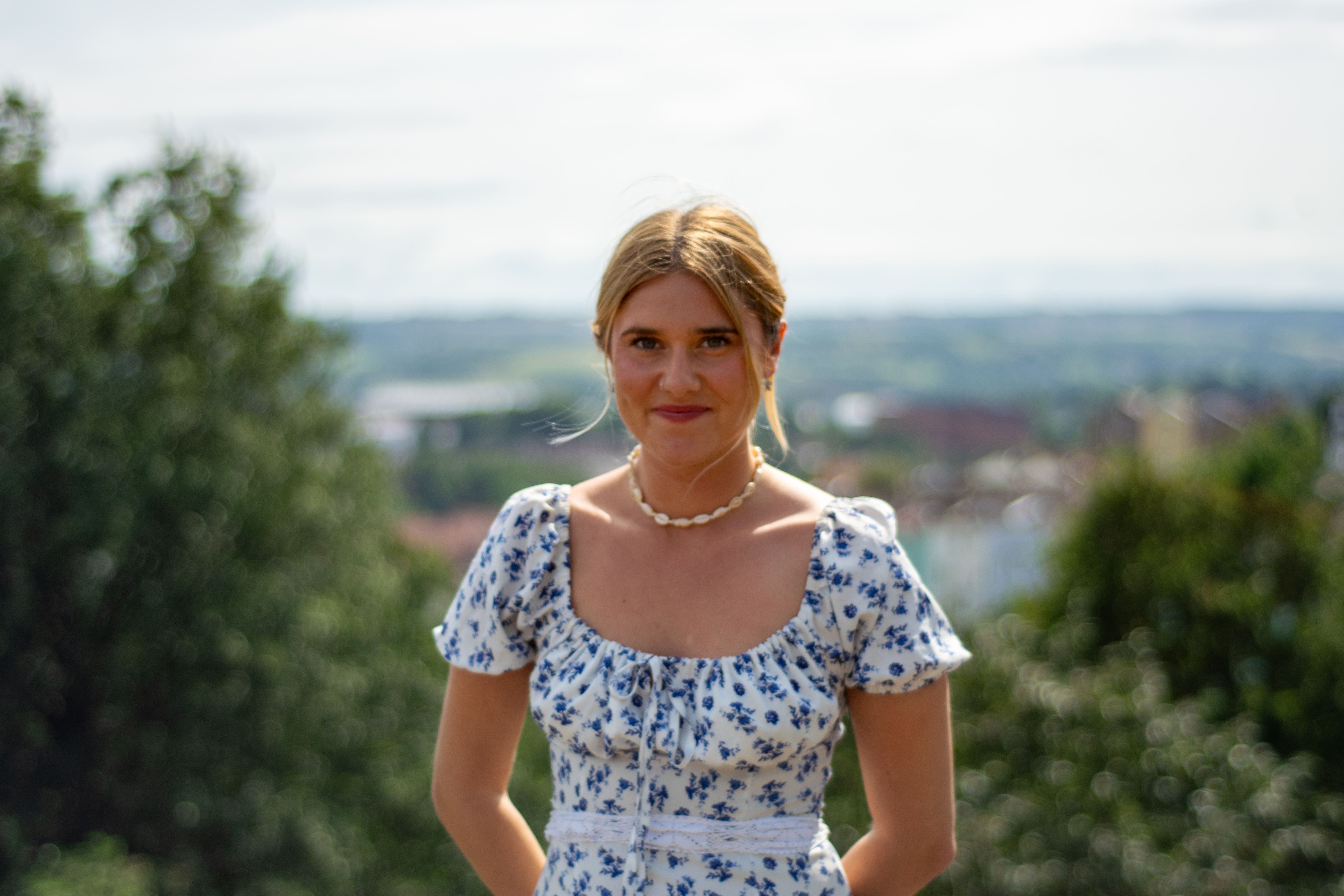Organisation sewing reusable sanitary pads for refugees gets charity status
Ella Lambert, 23, began sewing reusable period pads for refugees in her kitchen during the Covid lockdown.

An organisation started by a student sewing reusable period pads for refugees in her kitchen during the coronavirus lockdown has received charity status.
Ella Lambert, 23, from Chelmsford in Essex, was a languages student at the University of Bristol when she learned to stitch using YouTube videos.
She began the Pachamama Project in August 2020 and has since built a global network of 2,000 volunteers, who have sewn 100,000 colourful Pacha Pads.
The items are delivered to refugees and vulnerable people in 10 countries, including Lebanon, Greece, Pakistan and the United States.
Miss Lambert is now aiming to launch school period pad sewing clubs in a scheme akin to The Duke of Edinburgh Award in a bid to eradicate period poverty and stigma.
Speaking after the project gained charity status, she said: “It is so, so exciting.
“I just didn’t think this would ever happen. A few years ago, I had a little lightbulb moment and today we have this beautiful community – it’s really snowballed.
“When we started, we had volunteers who were shielding or feeling isolated and they’ve been able to find a purpose and be part of a worldwide family.
“Three years ago, people weren’t really talking about periods. Now it’s on the agenda.”
Last year, Miss Lambert went to Poland to co-ordinate the distribution of thousands of pads to hospitals in Ukraine and women in refugee camps.
The Pachamama Project has recently started working in Uganda, with recipients saying they are now able to go to school during their periods due to having the reusable pads.
Miss Lambert suffered debilitating period pain and learnt to sew to help others suffering due to their periods.
She recently graduated with a degree in Spanish from the University of Bristol and is now working full-time on the Pachamama Project.
“I’m really excited for the future,” she added.
“When I think about what impact we’ve had in just three years, with no one working on it full-time, I think we could triple our impact. We want to eradicate period poverty and eradicate period stigma.”
Her plans include continuing to grow Pacha Clubs, which see refugees and other vulnerable groups sew pads using the charity’s designs and sell them to create an income.
Miss Lambert is also keen to see teenage boys and girls sewing the pads in school, as well as bringing the Pacha Pads to more countries.
Volunteers are given sewing patterns and can choose when and where to make the pads.
Ruth Smith, a volunteer, said: “I have loved learning an important life skill, knowing that the pads we make are improving the dignity and hygiene of women in many different communities.”
The project is named after the goddess of fertility Pachamama, a figure revered by the indigenous peoples of the Andes.
Bookmark popover
Removed from bookmarks